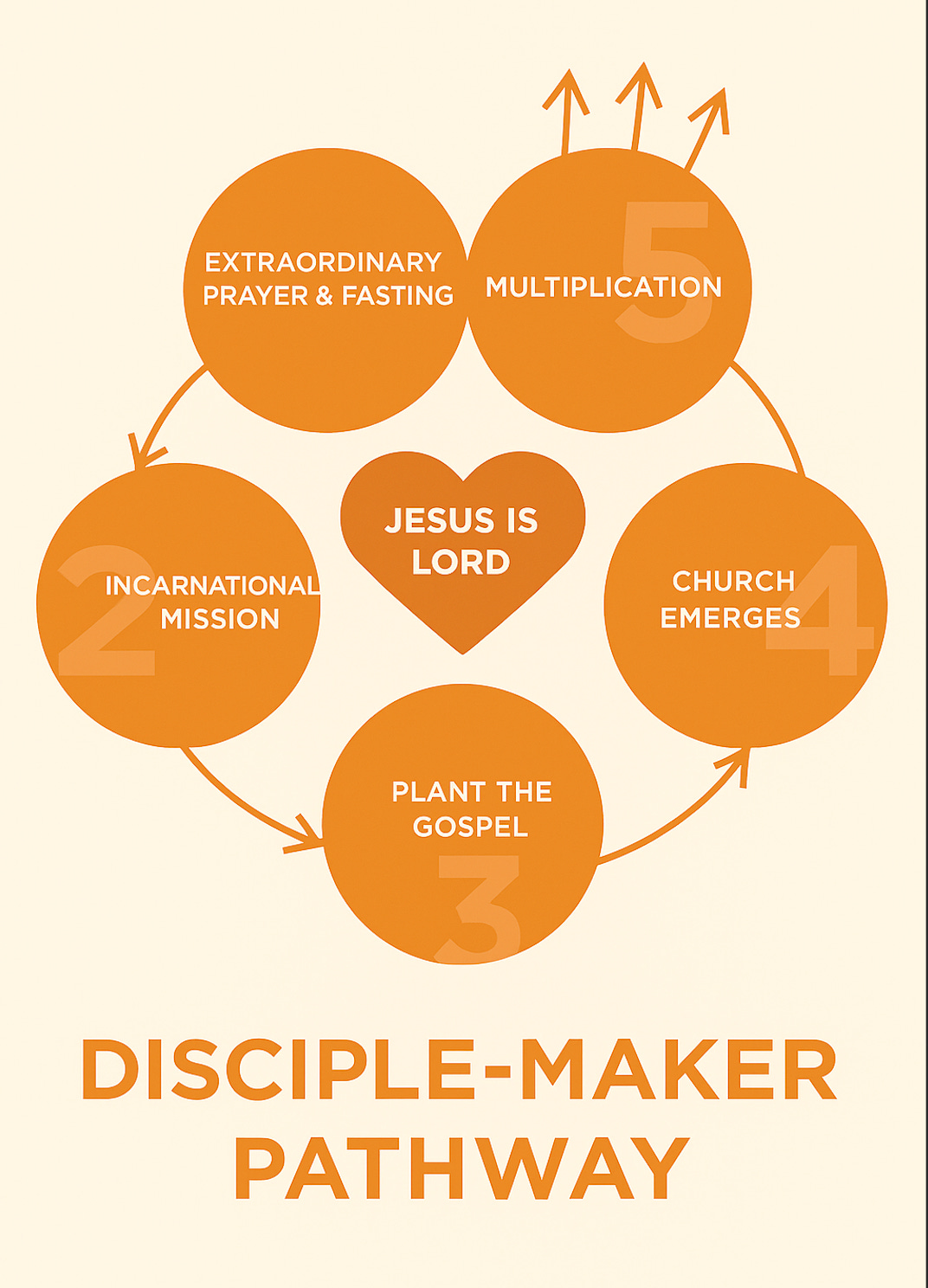Hubology: Equipping Gatherings
How do we shift the culture of our gatherings toward equipping? What are the values that will transform it from sitting to sending?
If we’re going to see disciple-making movements take root in the West, we need more than compelling teaching and inspirational worship. We need environments where disciple-makers are trained, leaders are supported, and everyday people are equipped to live the way of Jesus in the real world. Enter the Equipping Gathering—a different kind of social space that functions more like a gym than a theater.
Here’s how it compares:
Focus: Disciple-Makers vs. Everyone
Weekend services are typically built for broad reach: come one, come all. But Equipping Gatherings are intentionally narrow in focus. They zero in on disciple-makers and microchurch leaders—the ones who are already living on mission and just need the support, tools, and accountability to keep going. It’s more “band of brothers and sisters” than “crowd at a concert.”
Goal: Training vs. Inspiration
Inspiration is a great start, but it doesn’t equal transformation. The goal of the Equipping Gathering is to train people in real-life practices of disciple-making. We’re not trying to impress; we’re trying to equip. Weekend services often aim to encourage and inform. Equipping gatherings aim to mobilize. If you want to learn how to play the piano, you don’t attend a concert—you go to lessons and you practice. Same goes for making disciples.
Structure: Circles vs. Rows
The way a room is set up tells you everything about what’s expected of you. Rows say, "Sit, watch, listen." Circles say, "Lean in, share, participate." Equipping gatherings are built for dialogue, not monologue. They reflect the relational nature of the mission. (Spoiler: you can't one-another each other without facing each other.)
Source of Stories: The People vs. The Stage
In traditional services, most stories come from the front—preachers, teachers, musicians. But in Equipping Gatherings, the stories come from the body. Ordinary people sharing what God is doing in their neighborhoods, their workplaces, their microchurches. It’s a culture of testimony, not just teaching. Because spoiler alert: the Holy Spirit didn’t retire after the Book of Acts.
Means: Discovery-Based vs. Lecture-Based
Rather than one-way content delivery, Equipping Gatherings use a discovery process. People open Scripture together, wrestle with the Word, and hear from one another. It’s not passive learning—it’s active formation. We learn by doing, not just by hearing. (James 1:22: “Do not merely listen to the word, and so deceive yourselves. Do what it says.” Pretty straightforward.)
Engagement: Practice & Debrief vs. Listen & Sing
This is one of the most vital distinctions. Equipping gatherings include built-in space for practice and debrief. We don’t just talk about prayer—we pray. We don’t just hear about evangelism—we plan and go. Then we come back and talk about what happened. It’s training, not just teaching.
In the immortal words of the great theologian Mike Tyson, “Everyone has a plan until they get punched in the mouth.” Practice lets us get “punched” in a safe environment and learn from it.
Support & Accountability: High vs. Low
“I will…” statements are key. After learning together, people commit to action—and then we follow up. Coaching groups provide ongoing support. The whole system is designed for real-life obedience, not just merely intellectual assent. Weekend services typically offer little to no follow-up. You attend, you listen, you leave. (Preferably after snagging a free donut or coffee.)
Liturgy: Disciple-Maker Pathway vs. Sermon Series
Equipping Gatherings follow a different rhythm—one shaped by the Disciple-Maker Pathway (Extraordinary Prayer, Live as a Missionary, Plant the Gospel, Church Emerges, Multiplication). It’s movement-focused. By contrast, weekend services are usually oriented around sermon series—helpful, yes, but often disconnected from a broader disciple-making ecosystem. Sermon series may feed your mind, but the Missionary Pathway trains your feet.
Equipping Gatherings are not the next cool program. They are a necessary counter-formation to the dominant rhythms of consumer Christianity. They’re slow. They’re relational. They’re built for multiplication, not mass production.
As Paul charged the Ephesians, "Christ himself gave the apostles, the prophets, the evangelists, the pastors and teachers, to equip his people for works of service, so that the body of Christ may be built up..." (Ephesians 4:11–12, emphasis mine).
Notice: equip, not entertain. Mobilize, not monetize.
🏋️♀️🔥 Let’s build gyms, not theaters. Let's train missionaries, not just fill seats. Let’s equip the saints for the work of the Kingdom—together.
Interesting in learning more? 💬✨ A Bonus Conversation is coming next on Equipping Gatherings, where we will unpack how we’re embodying this in the KC Underground.
📝💭 Drop a comment below on on how you’re playing out equipping and equipping gatherings in your network.








Would love to talk with leaders doing this? This great, and been thinkg of such things for some time. Pratically in my context trying to bring more equipping and tools into the Sunday teaching and strong push to smaller communities. There we are trying to follow discover bible study and few other tools we created. Those tools also get dripped out in other ways. .